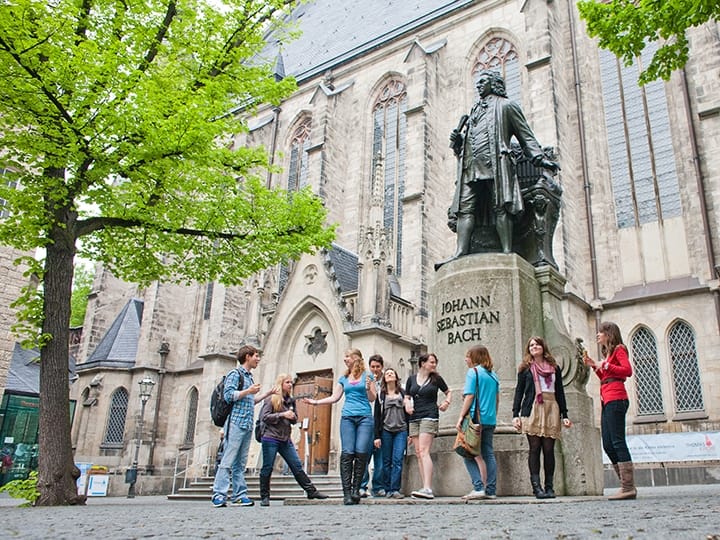Enlarge

If anyone knows the meaning and the reality of experiential learning, it’s Derran Reese (’00).
In fact, he could be a model for it. And that made him the logical choice to serve as ACU’s director of experiential learning. As part of his job, Reese works with other directors in the new Center for Careers and Experiential Learning, housed just inside the east entry to Brown Library.
“My story is the reason I believe in this,” Reese said.

Experiential learning opportunities have been central to the ACU student experience for years. The new center will give greater emphasis to that area of learning, adding synergy and momentum to what’s already happening, while exploring new opportunities.
Reese explained that “experiential learning” isn’t the same as “experiences.” While “experiences” often provide teachable moments, experiential learning is more focused and intentional, with several concrete parameters:
- Experiential learning is student-centered.
- It has to be done in a setting that is different from the student’s normal setting. That may mean a geographical change or it might mean a social or environmental change – something out of the student’s comfort zone.
- The experience must provide a real sense of problem solving, not just answering questions.
- The experience must include a real risk of failure – not just a failing grade but a failure to accomplish a goal.
- Reflection has to occur and from that reflection, the student must re-conceptualize what he or she is learning.
Reese need look no further than himself to point to an example of the value of experiential learning. He earned a bachelor’s degree in biblical text from ACU in 2000 and a Master of Divinity in 2006. His experiences also included two trips to Thailand, the first for 10 weeks in the summer following his freshman year. There were four people on the trip including Reese’s future wife, Ann Lynch (’00), who grew up in Thailand as the daughter of missionaries. The second trip was for another 10 weeks after Reese’s junior year.
The first trip was an “experience,” while the second fit the definition of experiential learning. Reese had lived in Abilene since age 9 and hadn’t seen much of the world. That first trip to Thailand was eye-opening. The second was life-changing. It left Reese, who thought he would be a preacher in Texas, thinking more deeply about his career.
“Maybe this is the path I want to travel,” he began thinking.
Derran and Ann married after graduation and were invited back to Thailand to spend two years. This time Derran learned the language, committed to cultural studies, and worked at a church – a true experiential learning model.
The trip came while Derran was working on his master’s degree. He learned from the experience that he was a much better student, something the new center emphasizes to other students. The experiential learning setting makes students better learners.
“I had questions I wanted answered,” Reese said, and they weren’t the kinds of questions that can be answered from reading a textbook.
Reese is optimistic about the impact the Center for Careers and Experiential Learning will have on students as they seek new ways to overlap learning opportunities, turning them into settings for experiential learning. The new center, with easy access, already is attracting inquisitive students and faculty.
“Students are seeking authentic experiences. I think that will only grow,” he said.
A focus on student success
Innovative ideas such as the creation of the Center for Careers and Experiential Learning helped ACU earn accolades from U.S. News and World Report’s benchmark based on student success. ACU was the highest-ranking university in Texas in the magazine’s new category, “A Focus on Student Success.” Nationally, ACU achieved Top 20 status in three of eight high-impact categories:
- Service Learning – #4
- First-Year Experience – #9
- Learning Communities – #11
The only other Texas universities in the Top 20 of the new benchmark were Baylor, Rice and The University of Texas at Austin. Additionally, ACU was ranked in the Top 50 in the nation in two other categories:
- Study Abroad – #35 (tie)
- Undergraduate Research/Creative Projects – #42 (tie)
